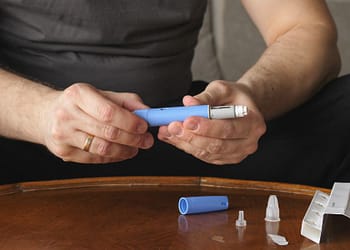The government of the United Kingdom has launched a pioneering trial that could transform the way the virus is detected. breast cancer. With Almost 700,000 women participated, study will evaluate how artificial intelligence (AI) can detect breast cancer cases earlier.
This trial, called EDITH (Early Detection Using Information Technology in Health), will be conducted at 30 health centers across the country. It will use AI technology to help radiologists examine mammograms and detect signs of breast cancer earlier than could be achieved using the traditional method. Instead of relying on two radiologists, as is the usual process, AI will allow a single person to complete the process safely and efficiently.
AI will make it possible to identify patterns invisible to the naked eye, speeding up detection and reducing waiting lists. If the trial is successful, it will free up resources and allow more patients to be treated in a timely manner, thus optimising the health system.
Impact on the NHS and survival
Breast cancer is the most common form of cancer among women in the UK, with around 55,000 new diagnoses each year. Currently, women aged 50 to 71 are screened every three years. This trial aims to improve that screening, making diagnosis quicker and more accurate, which would increase survival rates.
Professor Lucy Chappell, chief scientific adviser at the Department of Health, said the trial represents a significant step forward. She said publicly funded research is essential to testing innovative technologies, such as AI, that can transform healthcare.
Contribution to the National Plan against Cancer
The EDITH trial is part of a wider initiative to revolutionise cancer care in the UK. The government, in its National Cancer Plan, is committing significant resources to improving cancer detection, treatment and research. The trial has a budget of £11m. Cancer claims one life in the country every four minutes, and this project aims to address this reality.
Through the National Plan, the government intends to promote a comprehensive strategy to reduce cancer deaths and improve survival rates, focusing not only on common cancers such as breast cancer, but also on rarer ones, including childhood cancers.
Backed by medical experts, scientists and charities, the aim is to ensure that the UK remains at the forefront of cancer innovation, including advances such as immunotherapy and advanced therapies. To accelerate this progress, the government has launched initiatives to coordinate clinical research and maximise the impact of new technologies.
Commitment to the Future of the NHS
In addition to this trial, the government has also promised to speed up diagnosis and treatment times for cancer patients. From 2026, the NHS will ensure that 80% patients receive a diagnosis within 28 days of being referred for suspected cancer. This is a significant step forward in the fight against the disease, given that early diagnoses are key to improving survival rates.
Health Secretary Wes Streeting, stressed that as a cancer survivor, he deeply understands the importance of early detection. In the context of the commemoration of World Cancer Day, he reaffirmed the government's commitment to ensure that the United Kingdom becomes a world leader in the fight against cancer, thanks to innovation and continuous improvement of health services.
This AI trial is a clear example of how the UK is using technology to tackle critical challenges in healthcare. If successful, it could change not only the way breast cancer is diagnosed, but also the way other diseases are treated through innovation in the healthcare sector. AI and investment in research are essential for a future where early detection saves more lives and the NHS adapts to the challenges of the 21st century.
For more information on how to participate or contribute to the National Cancer Plan, interested parties can visit the official government portal.






